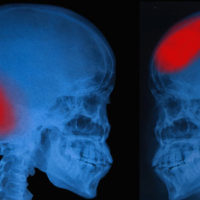When Collisions Result in Head Injuries

There are over six million vehicular accidents in this country every single year, resulting in three million injuries, two million of which have permanent impacts. When it comes to head injuries, 50 percent of all traumatic brain injuries transpire due to car accidents. If you or a loved one is dealing with a serious injury involving the brain, your physician has doubtlessly already told you that there are months, and potentially years of various therapies ahead. Dealing with the repercussions of such an injury can be overwhelming in terms of time, emotional expenditure, and medical costs. That’s why if the injury is the result of another driver’s negligence or recklessness, seeking the assistance of a local personal injury attorney could be worth your while.
How Brain Injuries Occur
Often, in motor vehicle accidents, just the force of the brain colliding against the skull in one’s head can be enough to do serious damage, including contusions, brain hemorrhages, and/or concussions, which may be asymptomatic directly following the incident. In other cases, the head may strike another object, such as the windshield, or, if ejected from the vehicle, the ground or other obstacles. The key factor associated with traumatic brain injuries (TBIs) is blunt force trauma to the head. Research indicates that these injuries are one of the leading causes of hospitalization in America, with between one and two million reported cases annually. While 50,000 patients die from their injuries every year, millions more suffer lifelong symptoms that require treatment and/or lifestyle modifications.
Potential Effects of TBI
Signs of a concussion indicating a TBI should definitely not be ignored, and sufferers should seek an immediate medical evaluation if the following symptoms appear following a head injury:
- Nausea and/or vomiting;
- Problems feeling disoriented;
- Dilated pupils;
- Temporary loss of consciousness;
- Hypersensitivity to sensory stimulation;
- Unexplained headaches;
- Memory problems;
- Mood swings.
Long Term Impacts
If, after a period of time, symptoms continue or worsen, it may be a result of a fluid buildup in the brain. This may lead to further complications, including:
- Double vision of complete vision loss;
- Ringing in the ears;
- Seizures;
- Difficulties understanding verbal or written language;
- Aggression or stubbornness;
- Problems with sensory input, such as losing the sense of smell or taste;
- Struggles with coordination;
- Difficult forming words;
- Problems with multi-step tasks;
- Serious memory issues;
- Inability to accurately interpret social cues and create positive social interactions;
- Constant drowsiness, or, conversely, the inability to sleep;
- Coma;
- Loss of brain activity altogether.
Following TBI
TBI has the potential to affect a patient in numerous ways. Indeed, family members may also be permanently impacted. In addition to treatment, transportation, and care issues, the financial impact of medical interventions, particularly if a breadwinner is affected, can be overwhelming. At The Law Office of Hasson D. Barnes, LLC, our Baltimore personal injury attorneys empathize with your situation, and is committed to helping you recover the damages you deserve to help you moving forward. To explore the possibilities, contact our office today to schedule a confidential consultation.
Resource:
driverknowledge.com/car-accident-statistics/

